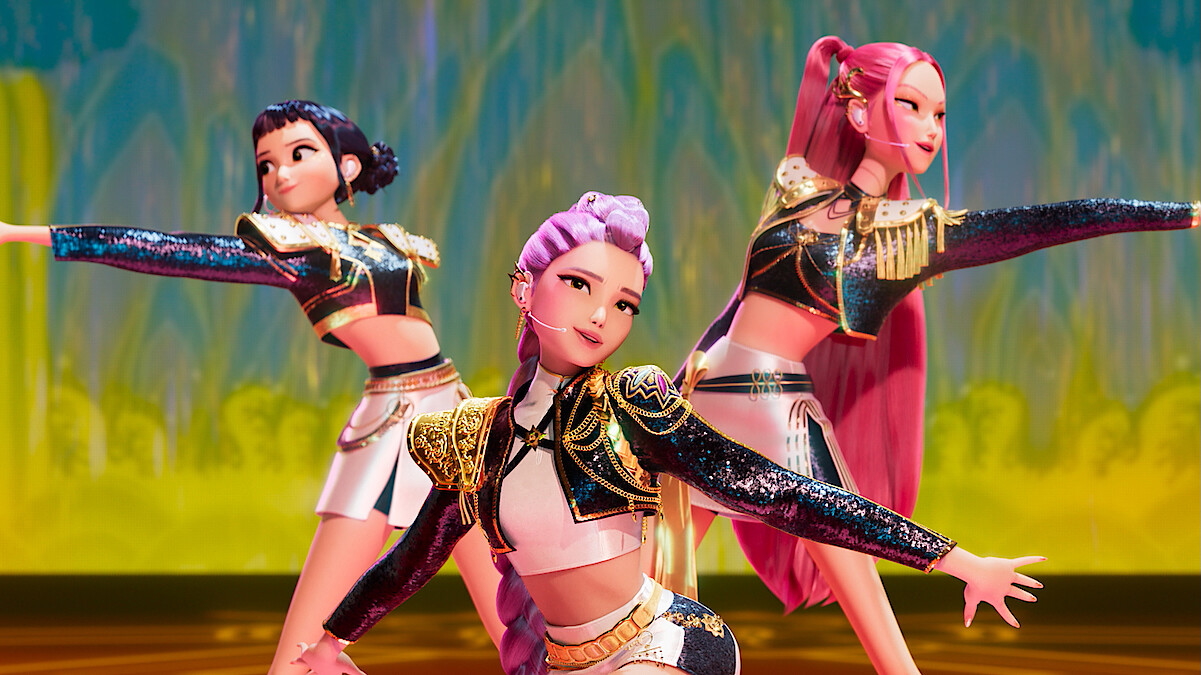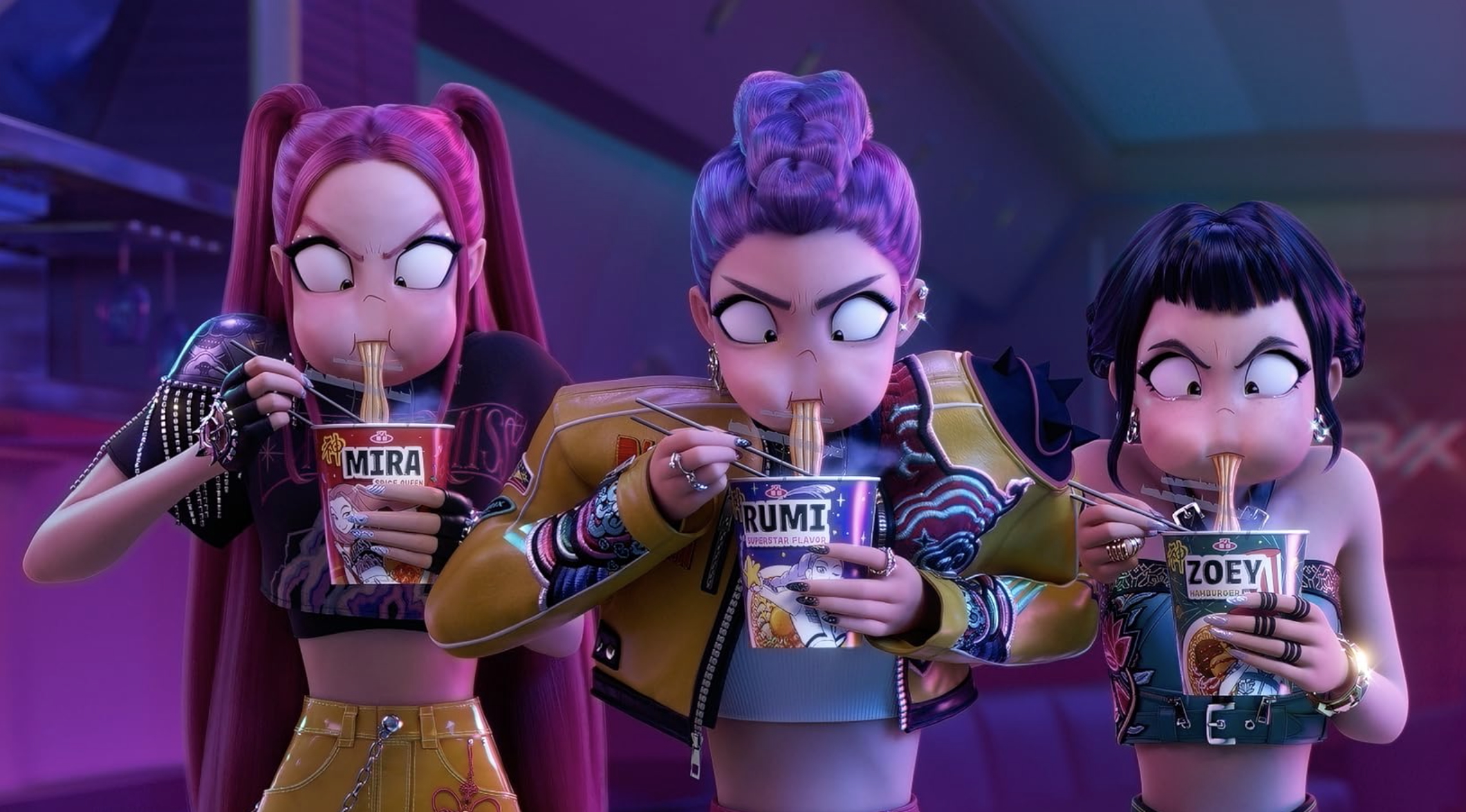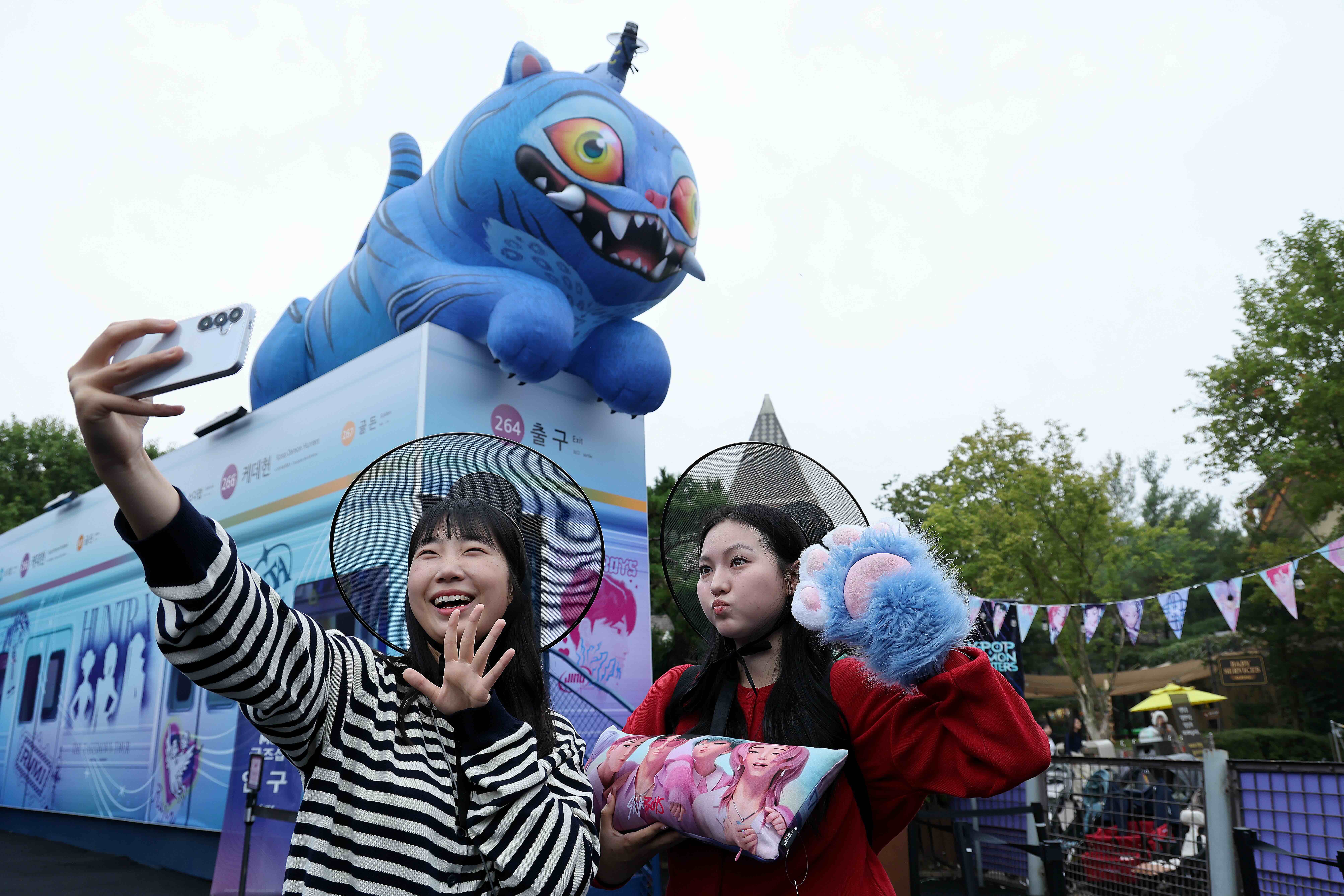
Arts & Culture
Have you been taken by the Korean Wave yet?

Unlike other shows, the idols in K-Pop Demon Hunters are not only glossy but highly relatable, messy and human. This may help explain why it's become the most-watched Netflix movie of all time
Published 13 October 2025
Just as I’m settling into some work one evening, I hear squeals of joy coming from the living room. My children, who were supposed to be quietly settling into their Saturday 'movie night', are jumping up and down on the sofa.
On the screen before them, I see an animated K-Pop girl group on a stage bathed in neon lights. “Oh great, an animated K-pop group?” I think to myself. All of a sudden, the stage shudders – not from the bass but from a swarm of shadowy demons.
Soon, the dance choreography morphs into combat stances and the idols launch into a mesmerising fight sequence. This isn’t just some animated music video – it’s K-Pop Demon Hunters, an eclectic crossover between K-pop idol culture, fandom and supernatural action.
K-Pop has always been about spectacle, but K-Pop Demon Hunters takes this to another level.
The Netflix title from Sony Pictures Animation follows a fictional girl group who double as exorcists. The movie is very much part Sailor Moon, part Buffy the Vampire Slayer, part K-Drama.
Where ‘magical girls’ of the 80s and 90s fought for love and justice, these demon hunters fight for creative freedom, mental health and survival in an industry increasingly in the spotlight for its ruthlessness.

Arts & Culture
Have you been taken by the Korean Wave yet?
Beneath the characters’ excitement-filled animated battles are metaphors for all the media headlines we have come to know when reading about the K-pop industry, from exploitative contracts, toxic fan wars, to tragic idol deaths.
Unlike many glossy idol dramas, K-Pop Demon Hunters doesn’t sugarcoat how hard idol life is. The protagonists are highly relatable.
They are messy and human – they cry backstage, fight with one another, doubt themselves. And yet, when it counts, they transform and fight together.
These differences may all help explain how K-pop Demon Hunters has redefined streaming success.
It’s the first movie on Netflix to remain in the top ten for 15 weeks straight, making it Netflix's most-watched movie ever, surpassing the success of the massively popular Squid Game.

The movie has seen widespread global engagement via social media platforms and recommendations, a further example of the huge influence of the internet on the success of the Korean Wave phenomenon.
In many ways, the movie resonates with the fourth wave of feminism in South Korea and its impact on media, whereby audiences are hungry for stories of women taking agency rather than simply enduring hardship.
The demon battles become a kind of wish-fulfilment fantasy: a world where idols aren’t just products of an industry, but warriors dismantling its worst parts.
One reason global fans love the movie is how it gamifies their own participation. Demons are weakened when the group’s fans chant together – a clever nod to the real-life fan chants that accompany every K-pop performance.
The idea that collective fan energy can literally banish darkness is empowering, particularly in a media environment where fans are often dismissed as obsessive or irrational.

Arts & Culture
Is K-Pop going K-aput?
The movie soundtrack is another major draw, with the movie’s animated trio HUNTR/X making waves with their catchy tunes.
HUNTR/X’s Golden has already spent eight weeks at No. 1 on the Billboard Hot 100 and could soon become the first K-pop recording ever nominated for Record of the Year.
If that happens, HUNTR/X would also be only the second animated act ever to receive that accolade (after The Chipmunks in 1959).
And this is not surprising, as each battle in the movie is scored to original tracks that sound like they could top real K-pop charts.
The lyrics double as incantations – love spells, banishment rituals, self-affirmations, blurring the line between pop performance and shamanic ceremony.

Naturally, this connection to Korea’s shamanistic tradition isn’t accidental. The movie evidently draws on Korean gut rituals, where music and dance drive out evil spirits.
In that sense, K-Pop Demon Hunters re-imagines the idol concert as a modern-day exorcism – something that feels strangely believable when you’ve been in an arena of 30,000 lightsticks moving in unison.
Beyond the action, the show holds up a mirror to the industry itself. By literalising the ‘demons’ idols face, it prompts viewers to consider the very real costs of stardom.
South Korea’s entertainment industry has faced increasing scrutiny, with lawsuits over restrictive contracts, documentaries exposing gruelling trainee schedules, and public outcry after high-profile tragedies.
Rather than glamorising the pain, K-Pop Demon Hunters acknowledges it and imagines a path forward.

Arts & Culture
A doll is just a doll is just a doll
At its heart, K-Pop Demon Hunters is about facing the darkness, both supernatural and personal. It is also about finding strength through community. It turns the stage into a battlefield, the fans into fellow warriors, and the music into a weapon for survival.
For a generation of fans who’ve seen both the glitter and the grit of K-Pop, the movie is more than escapism. It’s a reminder that even in a world full of demons, there is power in standing together, chanting back and demanding a better ending.